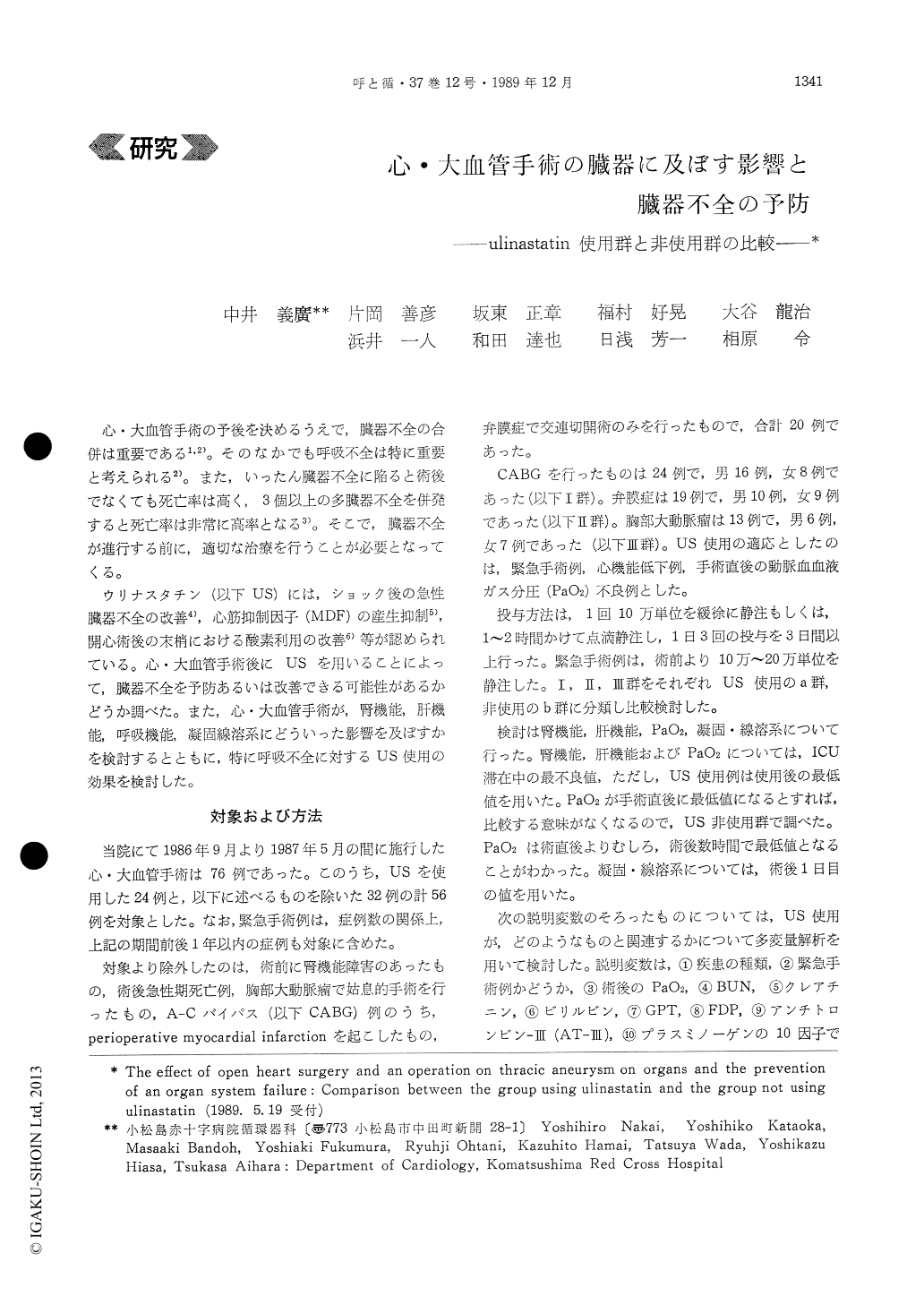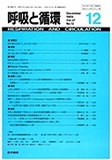Japanese
English
- 有料閲覧
- Abstract 文献概要
- 1ページ目 Look Inside
心・大血管手術の予後を決めるうえで,臓器不全の合併は重要である1,2)。そのなかでも呼吸不全は特に重要と考えられる2)。また,いったん臓器不全に陥ると術後でなくても死亡率は高く,3個以上の多臓器不全を併発すると死亡率は非常に高率となる3)。そこで,臓器不全が進行する前に,適切な治療を行うことが必要となってくる。
ウリナスタチン(以下US)には,ショック後の急性臓器不全の改善4),心筋抑制因子(MDF)の産生抑制5),開心術後の末梢における酸素利用の改善6)等が認められている。心・大血管手術後にUSを用いることによって,臓器不全を予防あるいは改善できる可能性があるかどうか調べた。また,心・大血管手術が,腎機能,肝機能,呼吸機能,凝固線溶系にどういった影響を及ぼすかを検討するとともに,特に呼吸不全に対するUS使用の効果を検討した。
We studied the effect of the open heart surgery and the thoracic aortic aneurysm surgery on renal, liver and respiratory function and the coagulo-fibrinolytic system. We also investigated as to whether ulinastatin was effective or not with regard to preventing an organ system failure.
The renal fuction, liver function and the coagulo-fibrinolytic system were preserved, although there was a greater number of severe cases in the group which used ulinastatin (US group) than in the group that did not use ulinastatin (non-US group).
In the US group, Pa02 did not decrease post-operatively. However, in the non-US group, Pa02 decreased significantly after the operation. The variables in relation to using ulinastatin, examined by a stepwise method, included kind of desease, emergency operation, PaO2, BUN and serum pla-sminogen. The multiple coefficient for these five variables was 0.623 (p<0.01) and the contribution was 38.8%.
It was suggested that ulinastatin could prevent an organ system failure, especially respiratory fai-lure, after open heart surgery and the thoracic aortic aneurysm surgery.

Copyright © 1989, Igaku-Shoin Ltd. All rights reserved.


